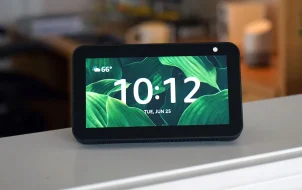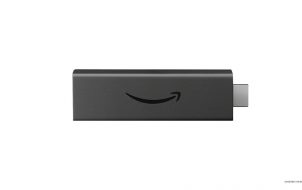Device Links
Amazon Sidewalk is a network that allows selected devices to connect with others and pass signals. In this way, you get long-range coverage and a better connection even when you’re not near your router. Although this automatically enabled feature is helpful for many reasons, you may opt out of using it due to privacy concerns or any other issues.
If you’re interested in learning how to turn off Amazon Sidewalk, look no further. This article will provide a detailed step-by-step guide on how to do it across different platforms.
How to Turn Off Amazon Sidewalk in the Alexa App on an iPhone
The Alexa app enables you to manage and control your smart home devices. If you want to turn off Amazon Sidewalk using the Alexa app on your iPhone, here’s what you need to do:
- Open the Alexa app.

- Tap “More” at the bottom-right corner.

- Tap “Settings.”

- Tap “Account Settings.”

- Select “Amazon Sidewalk.”

- Switch the toggle button to disable it.

Tip: Before starting the steps, ensure your Alexa app is updated. If you don’t see Amazon Sidewalk within your Alexa app and you’re running the latest version, it’s because the device you’re using doesn’t support it.
How to Turn Off Amazon Sidewalk in the Alexa App on an Android
You can control your smart devices through the Alexa app on your Android. One of the numerous options you can customize is turning off Amazon Sidewalk. Here’s how to do it:
- Launch the Alexa app.

- Tap “More” at the bottom-right corner.

- Tap “Settings.”

- Select “Account Settings.”

- Tap “Amazon Sidewalk.”

- Switch the toggle button to turn it off.

Only Echo speakers 3rd gen and newer support Amazon Sidewalk. If you have an older speaker, you won’t see the option in the app. If you have a newer speaker but don’t see Amazon Sidewalk in your settings, check if the Alexa app is updated.
How to Turn Off Amazon Sidewalk in the Alexa App on an iPad
If you’d like to disable Amazon Sidewalk in the Alexa app and you’re using an iPad, follow these steps:
- Open the Alexa app.
- Tap “More” at the bottom-right corner.
- Open “Settings.”
- Select “Account Settings.”
- Tap “Amazon Sidewalk.”
- Switch the toggle to disable Amazon Sidewalk.
If you don’t see Amazon Sidewalk in the “Account Settings,” it’s because you have a device that doesn’t support it or the Alexa app isn’t updated.
How to Turn Off Amazon Sidewalk in the Alexa App on a PC
The Alexa desktop version doesn’t have the option to disable Amazon Sidewalk. If you don’t have a mobile phone or tablet with the Alexa app, you can disable Amazon Sidewalk from the Amazon website.
Follow these steps to do it:
- Open your browser and go to the Amazon website.

- Log in to your account.

- Select the arrow next to “Accounts & Lists” at the top-right corner.

- Press “Manage Your Content and Devices.”

- Go to “Preferences.”

- Select “Amazon Sidewalk.”

- Press “Disable.”

How to Turn Off Amazon Sidewalk on Ring
In addition to the Alexa app, you can use the Ring app to manage Amazon Sidewalk. This app works on multiple platforms, and disabling Amazon Sidewalk is the same regardless of the platform you’re using:
- Open the Ring app.
- Press the three lines at the top-left corner.

- Select “Control Center.”

- Press “Amazon Sidewalk.”

- Switch the slider next to “Sidewalk” and confirm your decision.

How to Turn Off Amazon Sidewalk on Tile
Tile is the first third-party software to support Amazon Sidewalk. Tiles connect to other devices that connect to Amazon Sidewalk via Bluetooth. In this way, more users can help you track your devices thanks to a wider range.
Although Tile is integrated with Amazon Sidewalk, you can’t disable this feature within the Tile app. For that, you’ll need to use Alexa. Before starting the steps, ensure Tile is connected to Alexa and all your Tiles are enabled.
After you’ve established everything is connected correctly, use the Alexa app to disable Amazon Sidewalk:
- Open the Alexa app.

- Select “More” at the bottom-right corner.

- Access “Settings.”

- Tap “Account Settings.”

- Tap “Amazon Sidewalk.”

- Switch the toggle button to disable it.

How to Turn Off Amazon Sidewalk on Eero
Eero devices ensure a fast and reliable internet connection in all areas of your house. Although eero’s parent company is Amazon, eero devices currently don’t support Amazon Sidewalk.
Eero connects to your Amazon Connected Home which, in turn, enables you to control your network and devices within one hub. You can pause the Wi-Fi connection, find a device, or turn off the LED lights on any eero.
If you want to turn off Amazon Connected Home on eero, follow the instructions below:
- Open the eero app.
- Tap “Discover” at the bottom.
- Tap “Amazon Connected Home.”
- Select “Unlink Amazon” and confirm it.
Step Off the Amazon Sidewalk
Although it’s automatically enabled on the supported devices, Amazon Sidewalk isn’t obligatory, and you can disable it at any time. Amazon guarantees users’ privacy and security, but many are still skeptical about using this service. Fortunately, turning off Amazon Sidewalk isn’t difficult and can be done using the Alexa and Ring apps or the Amazon website.
We hope this article provided insight into how to turn off Amazon Sidewalk and that you’ve managed to do it regardless of the platform you’re using.
What is your opinion about Amazon Sidewalk? Are you using it on your devices? Tell us in the comments section below.
Disclaimer: Some pages on this site may include an affiliate link. This does not effect our editorial in any way.




























